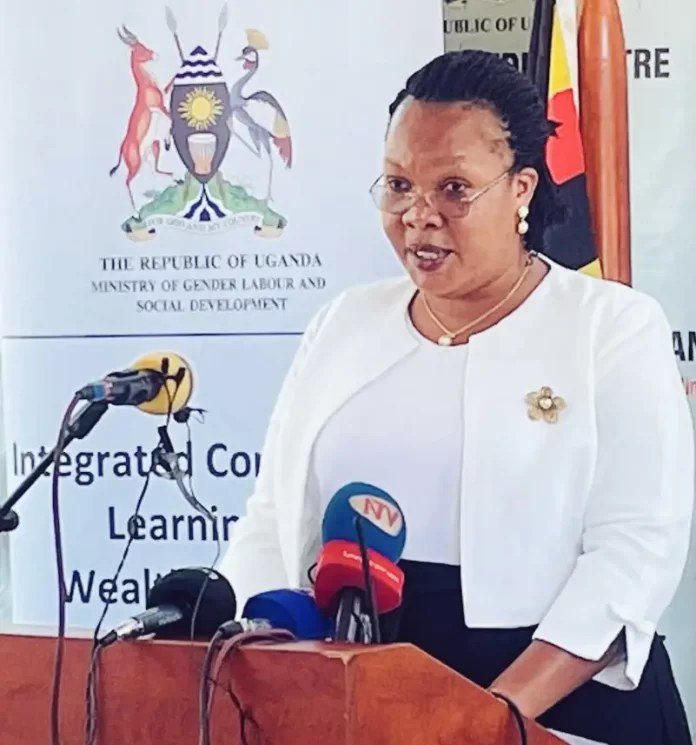
The Ministry of Gender, Labor, and Social Development has held a press conference on September 1, 2023, to discuss the forthcoming International Literacy Day that is scheduled for September 8, 2023.
The day is dedicated to spotlighting the critical importance of literacy, under the theme, “Promoting Literacy for a World in Transition: Building the Foundation for Peaceful and Sustainable Societies.”
Sarah Mateke, the State Minister of State for Youth and Children Affairs at Ministry of Gender, Labour and Social Development while speaking at Media Centre, said that the day was first established by United Nations Educational, Scientific and Cultural Organization (UNESCO) in 1967, which brings nations together annually to underscore the vital role of literacy in advancing societies.
“This day serves as a powerful reminder of our shared responsibility to empower individuals with the tools to read, write, and comprehend, thus unlocking doors to knowledge, opportunity, and empowerment. And in Uganda, the story of literacy is one of gradual steps towards improvement,” Mateke said.
Mateke also stated that, the national literacy rate rose from 69% in 2006 to 73% in 2009 with an 85% increase in rural areas.
According to studies by Uganda Bureau of Statistics (UBOS), in 2005/06 and in 2018, it was established that the literacy rate for individuals aged 18 and above in Uganda had risen to 73.5%. Among males, the literacy rate was 77.7%, while for females, it was 57.4%.
She further noted that, looking at different regions, Kampala had the highest literacy rate at 93.3%, while Karamoja had the lowest at 26.8% (37% for males and 20% for females). Other regions like Acholi, Bukedi, and Teso had literacy rates of 61. 7%, 64.3%, and 66.1 % respectively.
The government remains committed to addressing the disparities and promoting literacy as a tool for sustainable development. Literacy enables people to make informed decisions and choices by equipping them with problem-solving knowledge and skills, and accessing appropriate development.














